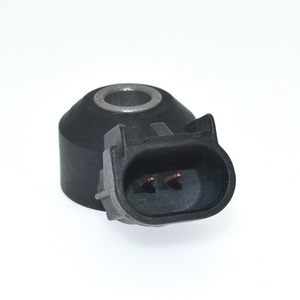(2036 products available)
























































































































































































































Car parking sensors for VW come in a variety of options to cater to different parking requirements and preferences.
Reverse Parking Sensors:
Reverse parking sensors are the most common type of parking sensor systems. They help detect obstacles when reversing, minimizing the risk of collisions. Usually integrated into the rear bumper, they use ultrasonic sensors to gauge distance and provide audio warnings. Some models may also include visual displays showing obstacle proximity.
Front Parking Sensors:
Front parking sensors function similarly to reverse sensors. They alert drivers of obstacles when moving forward, making parking in tight spaces safer. Integrated into the front bumper, these sensors help avoid pedestrian collisions and other obstructions. They are particularly useful for VW vehicles with longer lengths or limited rear visibility.
All-around Parking Sensors:
All-around parking sensors offer comprehensive coverage for parking maneuvers. Positioned on all sides of the car, these sensors provide alerts for obstacles in every direction. This is especially useful for parallel parking or navigating crowded spaces. Some all-around systems combine reverse and front sensors with additional side sensors for complete protection.
Smart Parking Sensors:
Smart parking sensors represent the latest advancement in parking assistance technology. In addition to detecting obstacles, they offer features like automatic braking, parking guidance, and even self-parking capabilities in certain car models. Smart systems use advanced sensors and algorithms to analyze the car's environment and assist drivers in parking safely and precisely.
Wireless Parking Sensors:
Wireless parking sensors eliminate the need for extensive wiring installations. They rely on wireless technology to transmit data between sensors and the control unit. This simplifies installation, making them a popular choice for aftermarket solutions. Despite the wireless aspect, they still provide reliable obstacle detection and warning signals.
Universal Parking Sensors:
Universal parking sensors are designed to be compatible with various car models, including different VW vehicles. They come in aftermarket kits with components like sensors, control units, and displays tailored to individual vehicles. Universal parking sensors offer a cost-effective way to add parking assistance, especially for older VW models lacking built-in sensors.
Here are the key specifications to look out for when purchasing car parking sensors for VWs:
Following the manufacturer's instructions and guidelines is important when maintaining car parking sensors. Here are general tips to ensure optimal functionality:
When selecting appropriate parking sensors for VW cars, consider the following factors:
Sensor type
There are two types of parking sensors: electromagnetic and ultrasonic sensors. Electromagnetic sensors are generally less expensive but might not be ideal for luxury VW cars. Ultrasonic sensors send sound waves and are suitable for luxury and expensive VW models.
Car model
Not all parking sensors will be compatible with a specific VW car model. However, manufacturers might advertise universal parking sensors that are compatible with different VW car models. Always check the parking sensor's compatibility with various VW car models.
Number of sensors
Park sensors kits come with different numbers of sensors. While some have four sensors, others have six or eight. Parking sensors with more sensors provide more accurate information and coverage. They also reduce blind spots. Choosing parking sensors with more sensors is a good idea if the car is big or has a complicated shape.
Display unit
There are two options for the display unit on the parking sensor: a visual display or a voice alert. Visual display units are better because they show the driver how close the car is to an object. They also provide more information. Display units with voice alerts are also available, but they are less common and provide less information to the driver.
Price
Generally, parking sensors have different prices depending on various factors. The type of sensor, number of sensors in a kit, and display unit affect the price of parking sensors. Always compare different prices from various suppliers and manufacturers to find appropriate parking sensors that fit the budget.
Replacing parking sensors can be a DIY-friendly project. With the right tools and basic car knowledge, follow these steps to ensure a successful installation. Here's a step-by-step guide on how to replace car parking sensors:
Tools and materials needed:
Step-by-step guide:
Q1. Do car sensors work in winter?
A1. Yes, the sensors work during winter. However, they might be less effective when ice and snow cover are present.
Q2. Can parking sensors be installed on any car?
A2. Ideally, sensors can be installed on any car that doesn't come with them as standard. Nonetheless, the system can be retrofitted to most cars.
Q3. Can parking sensors detect pedestrians?
A3. Normally, no. Standard parking sensors cannot identify pedestrians. However, some advanced systems can do this. These systems are generally known as collision avoidance systems.